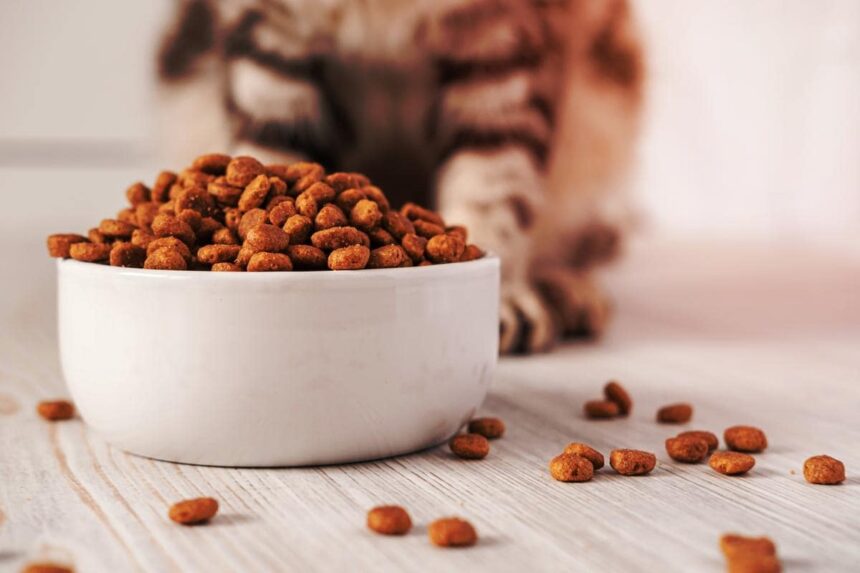Hey there, fellow feline enthusiasts! If you’re reading this, chances are you’ve witnessed a rather peculiar behavior in your cat – the infamous act of food-flinging. You put down a perfectly good meal for your furball, and what does it do? Splash! Food scattered all over the floor. So, what’s the deal with this messy feline dining habit? Let’s dive into the curious world of “Why does my cat throw his food on the floor?”
Understanding Cat Behavior
Before we get into the nitty-gritty of food tossing, let’s establish one thing: cats are complex creatures. They’ve got their quirks and oddities, just like humans. When it comes to mealtime antics, there could be several reasons behind this food-flinging phenomenon.
Instinctual Behavior
Cats are natural hunters, even if they’re pampered indoor kitties. The act of tossing food could be a throwback to their wild instincts. In the wild, a cat might play with its prey to ensure it’s truly dead or to test its hunting skills. When your cat tosses food, it could be mimicking this hunting behavior, especially if it’s kibble or small pieces of food.
Pro Tip: To cater to your cat’s hunting instincts, consider puzzle feeders or toys that dispense food. It’ll keep them mentally and physically stimulated.
Taste and Texture
Just like humans have preferences when it comes to food, cats do too. Your cat might be trying to tell you something about its culinary preferences. If it’s flicking away certain pieces of food, it might not like the taste or texture.
Takeaway: Experiment with different types of cat food to find the one that your feline friend enjoys the most. It might just put an end to the food flinging!
Dental Issues
Sometimes, cats may have dental problems that make chewing painful. They might resort to tossing their food around to break it into smaller, more manageable pieces. If your cat’s food-flinging seems to coincide with dental issues, it’s time for a trip to the vet.
Playtime!
Cats are playful creatures, and they can turn almost anything into a toy. Your cat might be tossing its food as a form of entertainment. It’s like their version of a dinner and a show!
Suggestion: Try incorporating playtime into your cat’s routine before meals. They might be less inclined to turn their food into a spectacle.
How to Deal with Food-Flinging Frustration
Now that you have some insights into why your cat throws its food on the floor, let’s talk about how to manage this behavior.
Use Appropriate Bowls
Consider investing in shallow, wide bowls that make it harder for your cat to scoop out and toss the food. These types of bowls can help reduce the mess and frustration during mealtimes.
Feed Smaller, More Frequent Meals
If your cat tends to play with its food and throw it around, try feeding smaller, more frequent meals throughout the day. This can minimize the mess and ensure your kitty gets the nutrition it needs.
Address Dental Issues
If you suspect dental problems, don’t delay in seeking veterinary care. Your cat’s oral health is crucial for its overall well-being. Once dental issues are resolved, you might see a decrease in food-flinging behavior.
Interactive Feeders
As mentioned earlier, interactive feeders or puzzle toys can engage your cat’s hunting instincts and provide mental stimulation. These can be a fun and effective way to curb food-flinging behavior.
Conclusion
In the world of cat ownership, there’s rarely a dull moment. From quirky behaviors like food-flinging to adorable purring sessions, our feline friends keep us on our toes. When you find yourself asking, “Why does my cat throw his food on the floor?” remember that there could be various reasons behind this behavior, and understanding your cat’s unique personality is key to addressing it.
So, don’t get too frustrated when your cat decides to make mealtime an Olympic sport. Instead, embrace the mystery and charm of your furry companion. After all, it’s these peculiar quirks that make them the lovable and enigmatic creatures we adore.
And remember, if you ever feel overwhelmed or unsure about your cat’s behavior, don’t hesitate to consult with a veterinarian or a professional cat behaviorist. Your cat’s well-being is always worth the extra effort.
Happy cat parenting!



